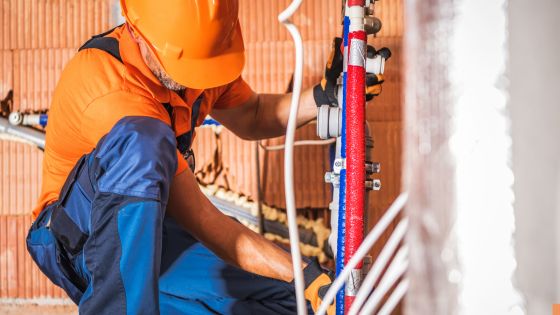While taking on DIY plumbing projects might seem like an excellent way to save money, significant risks lurk behind even minor repairs. Attempting plumbing work without proper training and equipment can lead to catastrophic and expensive problems.


Why DIY Plumbing Often Goes Wrong
Plumbing systems are complex mazes of water, gas, sewage, appliances, fixtures, vents, and more. Without specialized tools, materials, and experience, the margin for error is massive for amateur DIYers. Some common ways DIY plumbing projects turn disastrous include:
Failing Building Codes
- Using incorrect pipe sizes/materials
- Improper venting of gas appliances
- Not meeting safety standards
This compromises safety and functionality while also invalidating home insurance policies. Tearing out and replacing DIY plumbing is often required to meet codes when selling a home.
Water Damage
- Leaky pipes and joints
- Faulty appliance/fixture installation
This leads to flooding, mold growth, rotting building materials, and destroying personal property. Remediation and repairs can cost tens of thousands of dollars.
Sewage Backups
- Clogged or punctured drain lines
- Improper drainage slope
Raw sewage overflow leads to hazardous exposure, contamination, and expensive remediation and repairs.
Gas Leaks
- Ruptured gas lines
- Undetected leaks causing explosions
Toxic and explosive gas accumulation poisons air quality and quickly turn deadly with one errant spark.
Contaminated Water Supply
- Using the wrong soldering materials
- Toxic chemicals leaching from pipes
Consuming contaminated water carries immediate and long-term health risks for entire households.
Going Beyond DIY Limits
Some plumbing projects are far too complex for amateur DIY attempts:
- Main Sewer Replacements – Requires heavy equipment operation and confined space entry training.
- Gas Line Installations – Precise pipe sizing, regulation, and testing methodology are mandatory to prevent leaks.
- Whole House Rewiring – Impacts multiple critical systems and requires advanced electrical skills and knowledge.
These require extensive training and commercial-grade equipment only professional plumbing services possess.
Financial and Legal Risks
While DIY plumbing presents many physical risks, it also carries heavy financial and legal implications:
- No Permits – Municipalities require work permits and inspections to ensure code compliance. DIYers must pay more attention to this, leading to heavy fines.
- Voided Insurance – Insurance policies do not cover improper or unpermitted plumbing work.
- No Accountability – DIY mistakes can cost thousands to fix without recourse to recover expenses.
Benefits of Hiring Professional Plumbers
Always hire a licensed plumbing services contractor for complex repairs or replacements to avoid the laundry list of DIY plumbing risks.
Extensive Training and Expertise
Reputable plumbers complete multi-year training programs and must pass rigorous licensing exams. This gives them in-depth knowledge of local and national plumbing codes to ensure safety and compliance.
Commercial Grade Equipment
Plumbers invest over $100,000 in professional tools and equipment designed specifically for the intricacies of plumbing systems. This allows them to access and maneuver tight spaces while avoiding damage.
Quality Materials and Parts
Professionals source high-grade fixtures, pipes, fittings, solders, and components that meet stringent industry standards. This prevents premature leaks and failures. They also have access to rare parts that average DIYers can’t obtain.
Permits and Inspections
Licensed professionals are familiar with local permitting requirements and have no issues passing plumbing inspections. This guarantees code compliance and satisfaction when selling your home.
Warranties and Insurance
Qualified plumbers provide warranty coverage on new installs and repairs while carrying robust insurance policies. This protects your home from accidental damage and avoids massive out-of-pocket expenses.
Protect Your Investment – Hire the Experts!
While simple drain unclogging or faucet replacement projects may be DIY-friendly, more complex plumbing system repairs and replacements should always be left to highly experienced professionals.
Don’t risk your family, home, and finances by attempting dangerous plumbing experiments to save a few dollars. The horrendous costs of water damage remediation, sewage cleanup, gas leak explosions, or complete system re-installs after failing inspection will quickly eclipse any minor upfront savings on a botched DIY job.
Contact a reputable, licensed plumbing contractor immediately to handle any major plumbing issues. Their highly-trained experts have years of experience safely navigating complex installations and repairs. They also provide warranties, insurance, code compliance, and peace of mind that your most valuable investment is in safe hands.








